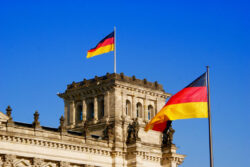In 2012, US authorities confiscated and kept US$20,000 of a Danish policeman’s money because he tried to buy Cuban cigars from Germany.
You might think this transaction has nothing to do with the United States, so how did they even get a hold of the money, let alone find out about it, or keep the funds in the end?
Well, the payments went via the SWIFT payment channel for international transactions. And the transaction used the US dollar because it is the global reserve currency. And so that’s how the US snagged the payment under Cuban embargo legislation.
My question to you is this: if you know the money you are transferring can simply be confiscated by a third party which has nothing to do with the transaction, do you continue to use that payment channel?
The correct answer is “it depends on the alternatives”.
I don’t know much about the resourcefulness of Danish policemen, but they are unlikely to be able to found a new international payment system to rival SWIFT. Then again, bitcoin was likely created by an academic, of sorts.
Anyway, the world trundled on as if nothing had happened to the Danes’ money and nobody except me seemed to care. That was until Monday 28 February 2022, when the US government froze Russia’s central bank assets that were held in the United States.
This effectively excluded the Russian financial system from its connection to the global economy, however imperfectly.
Freezing Russian assets held in the United States might seem like an obvious thing to do given the war in Ukraine. But preventing nations all around the world from doing business with Russia via international payment mechanisms was a bit of a wakeup call for all the other nations too. Many rely on Russian goods.
China, Iran and others began to consider other options, such as trading in yuan or commodity-based barter. So far so obvious…
But Bloomberg has reported that the disquiet is spreading beyond the United States’ obvious enemies like Russia, Iran and cigar smoking Danish policemen:
“The US dollar is a hex on all of us,” George Yeo, former foreign minister of Singapore, said at the conference hosted by the ISEAS-Yusof Ishak Institute. “If you weaponize the international financial system, alternatives will grow to replace it” and the US dollar will lose its advantage.
Weaponise is the key term here. The idea that the US dollar’s use can be turned into a threat and weapon. If you don’t comply with US demands, you won’t be able to buy, sell, trade or use your foreign reserves.
While everyone can freely use the US dollar as the global currency, that system works quite well. The threat is powerful.
But if the US does actually freeze out nations from using the US dollar, alternatives will be needed. Once those exist, then the threat of the weaponised US dollar will merely drive nations to those alternatives.
The threat becomes self-defeating. It leaves the US weaker as nations abandon its currency and US dollar assets with it.
Yeo wasn’t the only one alerting the world to what has changed:
Following on Yeo’s remarks later in the conference, former Indonesian trade minister Thomas Lembong applauded Southeast Asian central banks that already have developed direct digital payments systems with local currencies, and encouraged officials to find more ways to avoid leaning too hard on the greenback.
“I have believed for a very long time that reserve currency diversification is absolutely critical,” said Lembong,
In an update to his subscribers of Strategic Intelligence, Jim Rickards analysed the comments: “What’s amazing about this report is that the criticism of US dollar policies is coming from reliable allies and countries that have traditionally favoured dollars.”
His point was that nobody wants to be beholden to the United States. Including the US’ traditional allies. They want to have one foot in each camp to ensure they can trade freely, whatever the US threatens.
It’s a mighty awkward state of affairs. And the secondary effects could be important too.
Nations hold a lot of US dollars and US dollar assets like US government bonds because these are needed in the global trading system. If countries diversify, this implies selling a lot of US dollar assets. That, in turn, would mean that the US government loses lenders.
Similarly, the world gets a lot more confusing if the US dollar is not the ultimate measuring stick of Cuban cigars in Europe and all other transactions around the world. Imagine a global financial and trading system where the exchange rate between centimetres and inches keeps changing. It’d make international trade chaotic.
So, what’ll replace the US dollar now that nations are turning their back on it and looking for alternatives?
I haven’t got a clue. But the race is fun to watch.
Gold is looking like the front runner so far. Ghana began buying oil with gold in 2023 in order to avoid having to use the US dollar: that was after the World Bank had ruined its economy. The Chinese are stocking up on gold in preparation for trade in gold or a gold-backed currency.
Gold, bitcoin and other options were all mentioned by the Russians in defiance of the US government’s sanctions.
It’s unlikely that nations will agree to use another national currency or the euro given that the same problem would apply. Nations using that currency would be at the mercy of whoever controls it.
The same criticism applies to the International Monetary Fund’s special drawing rights because nations are unlikely to trust the IMF to be impartial.
Bitcoin is another popular option to mention, but it’s a bit small and I can’t see governments giving up control to that extent.
There’s also the chance that no one single asset replaces the US dollar as the global trading currency. We might be in a multi-polar world.
Whatever happens next, things could get ugly for the United States and its dollar in coming years. No doubt US policymakers will panic and try to cajole nations into using the currency to keep the system from breaking apart. But even the US’ allies have made it abundantly clear that they are interested in alternatives.
There’s a novel called The Mandibles by Lionel Shriver which is about how all this plays out. We might not make it to the fictional 2029 before the crisis really begins though…

Nick Hubble
Editor, Fortune & Freedom



